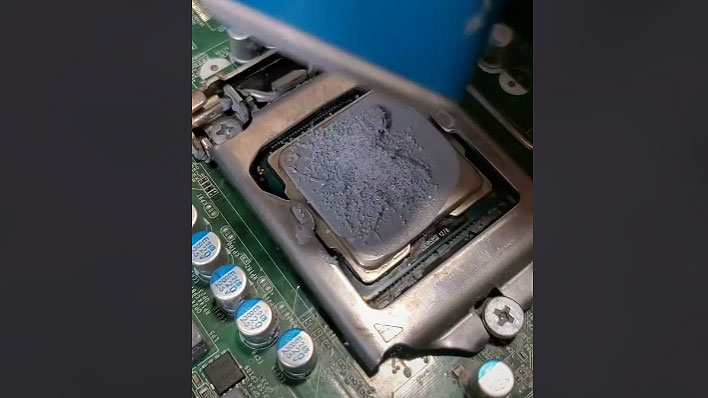Seasoned Cooling Expert Noctua Addresses Salty CPU Thermal Paste Mod

I don't know who needs to hear this, but mixing table salt with your thermal paste to cool your PC processor (or any component) is a bad idea. Most people wouldn't even consider it (I hope, anyway), but lest there be any doubt, cooling company Noctua explained why the combination is an ill-advised one after a TikTok video showing the salty thermal paste mod went viral.
The quirky experiment by TikTok user @mryeester has over 35,000 likes and several-hundred comments since the video was posted to the popular social media platform a while back. In it, @mryeester points out that the thermal conductivity of salt (sodium chloride, or NaCl) is 7 watts per meter Kelvin. This perked his interest because that's actually higher than some thermal pastes on the market (he points to example of a thermal paste with a thermal conductivity of 1 watt per meter Kelvin).
@mryeester adding salt to thermal paste! this request came in via email, thanks for the suggestions! #pc #pctips #thermalpaste ♬ Aesthetic - Tollan Kim
"So in theory it might make sense to mix these together, however in practice we see that the salted thermal paste is around 20 degrees hotter than normal," he points out in his video.
Case closed, but then in a follow-up video, the same user ground the salt into a fine powder with a spoon before mixing it with thermal paste and saw his temps hold steady. This led him to conclude that it seems to work, at least in the short therm.
So should you try it after all? Well, the folks at PC Gamer asked Noctua for its take, which stated in no certain terms that it "definitely doesn't recommend" pouring salt into your thermal paste.
According to Noctua, traditional filler materials are much more conductive than salt. These include materials like aluminum oxide and other metal oxides.
"Also, salt particles keep the cooler from making good contact with the CPU, so that thermal performance will be poor due to poor contact," Noctua added. "Last but not least, there's a high risk of corrosion issues."
I find it interesting that @mryeester saw promising results after grinding the salt, though the 30-second follow-up video is short on details. A primary function of thermal paste is to fill in the microscopic nooks and crannies in a CPU's integrated heatspreader (IHS) and base of the cooler, which are invisible to the naked eye. While grinding salt into a powder appears to help at first glance, Noctua makes it clear that there are other issues at play.
So to reiterate, don't try this at home. And if you purchased a Ryzen 7000 series CPU, Noctua says just a little dab of paste (3-4mm in diameter) is sufficient.
Thumbnail and Top Image Source: @mryeester via TikTok

